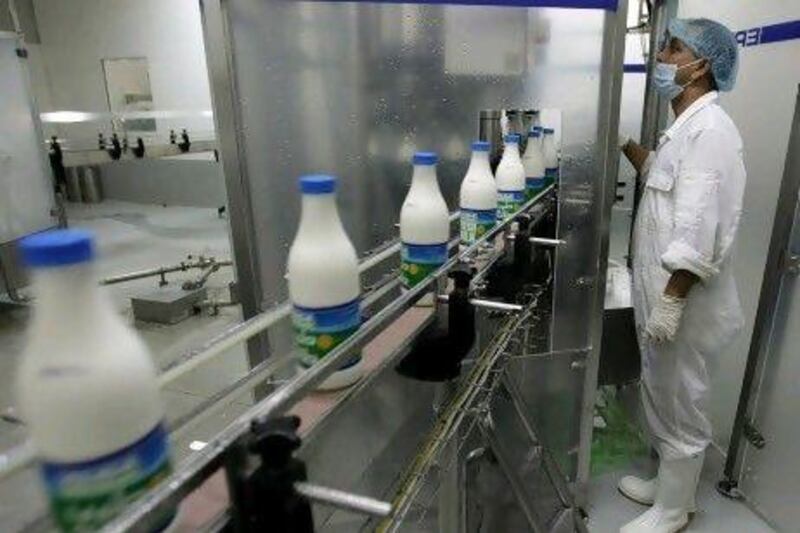Dubai Investments is expecting a major decline in profit this year despite recently securing Dh700 million (US$129.5m) in loans to fund its portfolio of companies, the chief executive said yesterday.
"There were signs of recovery in 2010, but they were disturbed by the Arab Spring," said Khalid bin Kalban. "Companies were hoping that 2011 was supposed to be the last year of economic weakness, but I think it turned out to be the worst year since 2003."
Dubai Investments owns significant stakes in a total of 40 companies spread across the glass, food, pharmaceuticals, metals, rubber, property and financial industries, among others.
Those firms include Emirates Float Glass, Marmum Dairy Farm, Emirates Building Systems, Abu Dhabi Investment House and Al Mal Capital.
Mr bin Kalban said preliminary figures showed profits of just Dh270m for the first nine months of the year. That would equate to a profit of Dh31m for the third quarter, a fall of 85.5 per cent compared with the company's Dh213.6m in profits during last year's third quarter. The company has not yet disclosed its official results.
Mr bin Kalban attributed the expected drop in profit to higher provisions to buffer against more missed payments by customers.
"We have to take provisions for clients in Libya and Syria who have not paid due to the unrest," he said.
Before the Arab Spring, Dubai Investments had made a concerted effort to expand its focus beyond the GCC and into countries such as Egypt, Libya and Syria to take advantage of rising economic growth.
But that strategy backfired when unrest erupted, forcing businesses to put plans on hold and causing customers to default on payments.
Dubai Investments had a variety of interests and contracts in North Africa that were affected by the political turmoil, including a deal worth €80m (Dh407.7m) to build a "steel structure" at the Benghazi airport and a plan to open a 40 square kilometre business park along the lines of its Dubai Investments Park on the emirate's south-western fringe.
Mr bin Kalban said he hoped discussions could be revived on those projects once political stability returned to the country. For now, however, they were on hold as the company refocuses on manufacturing and exports to new markets.
"This all came to a halt," he said. "Now we are getting correspondence from the authorities saying we'd like to revive what was discussed earlier."
With the renewed focus on manufacturing, Mr bin Kalban said Dubai Investments had secured a Dh700m loan from local banks to help to expand its float-glass plant in Abu Dhabi. The plan is to borrow a total of Dh1.2 billion from banks, with the rest of the money coming from European banks once the company gets nearer to construction on other new projects, including in manufacturing and health care.
"Our manufacturing business is where our focus is now as far as Dubai Investments is concerned," he said.
Another of the company's subsidiaries, a private equity firm called Masharie, was contemplating a plan to raise its capital from Dh600m to Dh1bn, Mr bin Kalban said. The company, in which Dubai Investments has a 65 per cent holding, is planning to use that money to finance acquisitions, although no final decision had been made yet. A planned initial public offering of 30 per cent of Masharie continued to be on hold, he added, as trading on local stock markets remained thin.
Despite its declining profits, Dubai Investments was also looking at three new acquisitions for Dh250m - in the UAE, Saudi Arabia and Turkey, Mr bin Kalban said. They would be in the food processing, retail and personal care sectors.
The company's shares, which are listed on the Dubai Financial Market, fell 0.7 per cent per cent to close at 68.5 fils yesterday.





